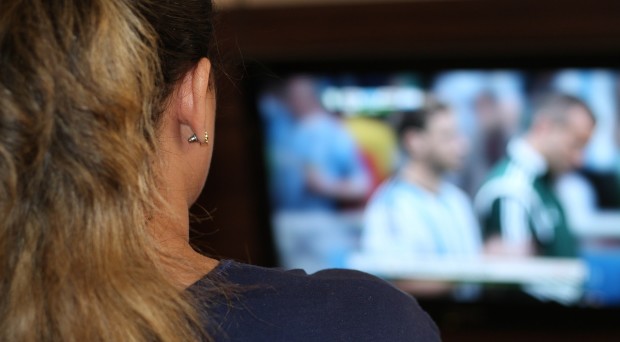
By the time they are teenagers, 70% of young people are not doing enough physical activity. Teenagers also spend an average of 8 hours every day sitting with 11-15 year olds watching nearly 3 hours of television (TV) programming daily.
Both too little physical activity and too much sitting are independently bad for the health of teenagers – and may raise the risk of obesity and insulin resistance, an indication of diabetes risk.
We know that inactivity and too much sitting is harming the health of young people but we wondered whether it could also be bad for teenagers’ grades.
Does increasing physical activity improve learning and exam grades, or does the time spent on physical activity detract from exam performance? Does sitting harm academic performance, and how are different sitting behaviors linked to GCSE grades?
What did we do?
We measured the physical activity and sitting time of 845 teenagers at 14.5 years old using a sensor that measures movement and heart rate. We also asked how much time they spent watching TV, playing computer games, surfing the net, doing homework and reading. At the end of Year 11 when these students were 16 years old we collected their GCSE results.
Teenagers with higher screen time had lower GCSE grades, even when we took account of homework and reading.
We observed that TV, computer games and internet use were all harmful to academic performance, but TV viewing was the most detrimental behavior with every extra hour per day linked to a drop of 9 GCSE points. The average student we measured watched TV for two hours per day which equates to 18 fewer GCSE points, equivalent to 4 grades (the difference between A* and C).
What does this mean?
This is important as schools are under so much pressure to improve exam results that many deprioritize Physical Education and other physical activity in preference for academic subjects.
Although we did not find that more physical activity was associated with higher grades, as some earlier studies have suggested, it was not detrimental to academic performance. This is important as schools are under so much pressure to improve exam results that many deprioritize Physical Education and other physical activity in preference for academic subjects.
We weren’t surprised to find that more homework and reading was linked to better grades, but we were surprised to see lower grades for students reporting the highest levels of these behaviors.
When teenagers read and did homework for up to four hours each day, more was associated with better grades, but once over four hours the grades started to decrease again. We don’t know for sure, but this could represent students who are struggling at school and needing to do a lot of homework to keep up.
These data were collected between 2005 and 2007; and the ever increasing variety of electronic media available now makes it even more important to examine links between physical activity, sitting time and academic performance as 72% of 12-15 year olds now own at least three electronic devices.
How can this be improved?
So, what can we do to help ensure that teenagers are getting enough physical activity and not spending too much time sitting in front of the TV screen, tablet or monitor?
If teenagers or parents are worried about grades then one option is to consider limiting TV. I think that it is important to look at the amount of TV time and try to be sensible about it. Currently, 62% of teenagers have TVs in their bedroom, a statistic that parents of teenagers could potentially reduce.
Teenagers should be doing at least 60 minutes of moderate or vigorous physical activity each day – this is activity that makes you start to sweat and begin to breathe heavily. Some countries suggest limiting TV viewing to two hours per day; and while there are no specific UK recommendations the UK’s Chief Medical Officers have recommend avoiding sitting for too long at a time.
Replacing some TV, internet use or computer games with physical activity, even going for a walk or kicking a football around the garden could be a win/win, not only improving overall health but helping to raise teenagers’ educational attainment.
In another study, we asked teenagers how we could help them to be more active and sit less. The overwhelming response was that they wanted new activities to try and wanted more choice over what type of activities they do. They told us that the limited range of school sports was putting most of them off activity during teenage years.
We found that the teenagers didn’t want to sit; they wanted to be more active but didn’t think they had to opportunities to be. By offering a range of non-traditional activities to teenagers, over the usual football, netball, rugby and hockey this could encourage more activity and make TV, computers and internet less appealing.
Comments